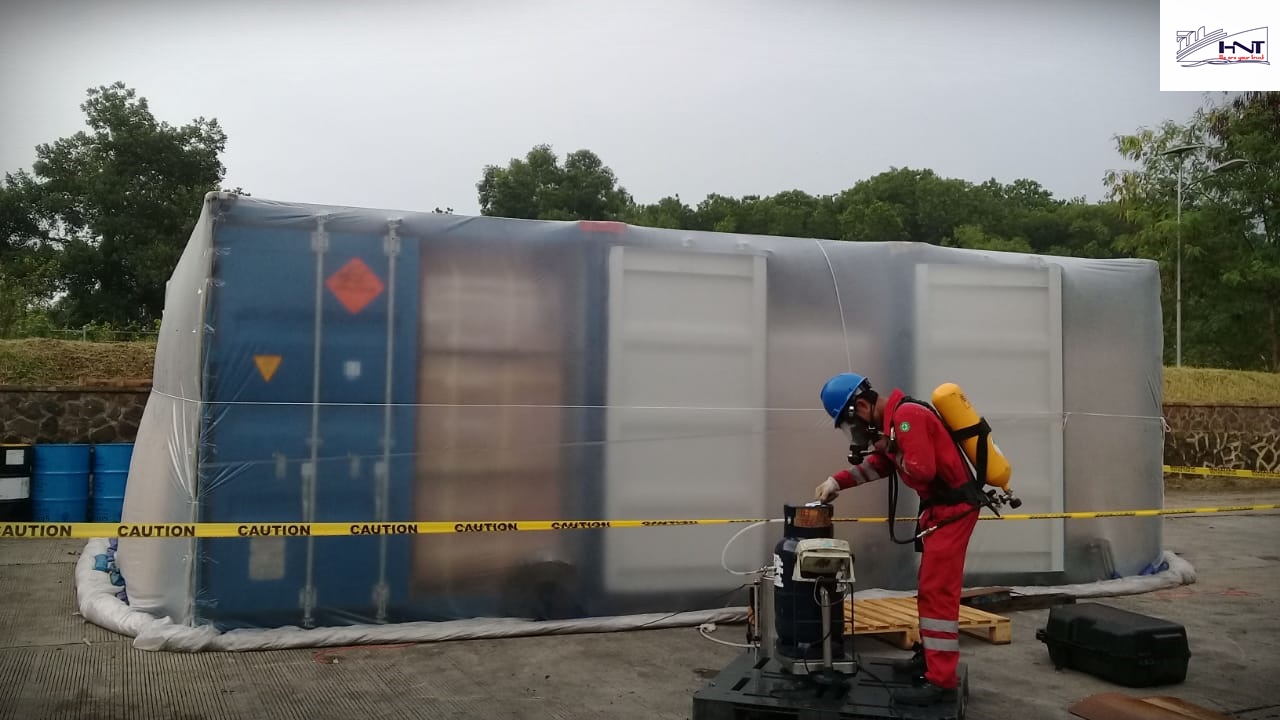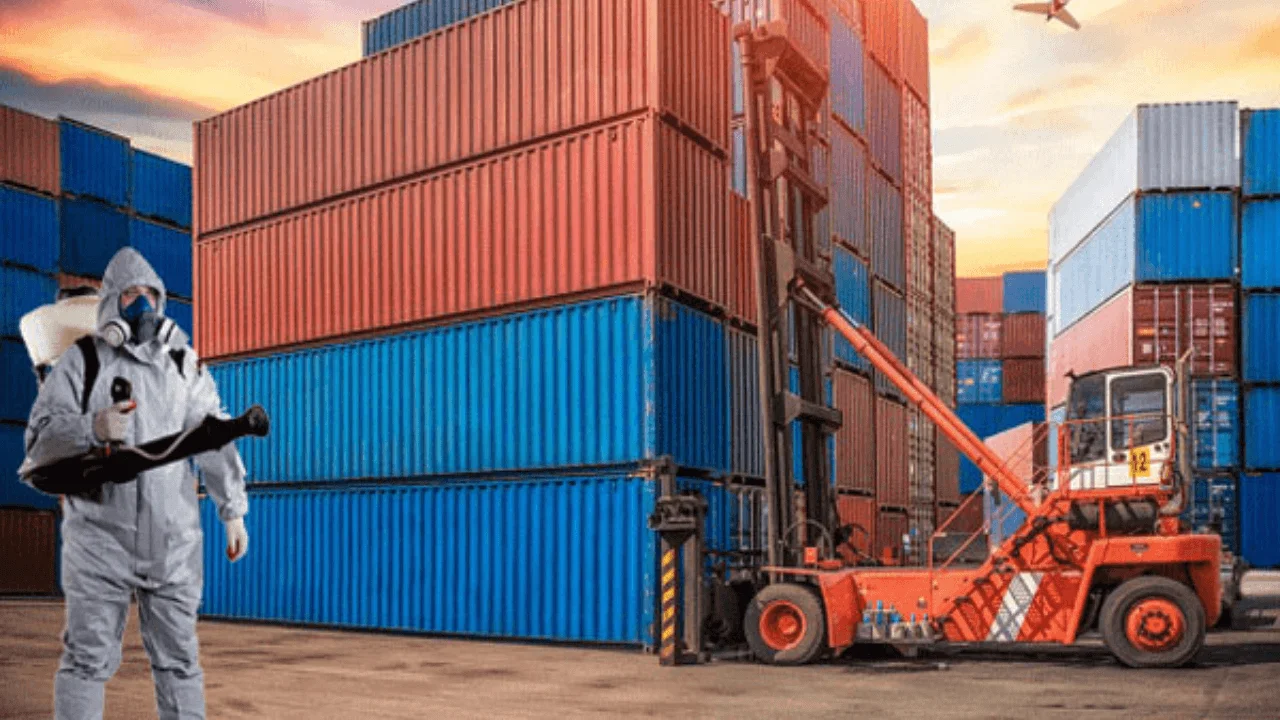What is a fumigation certificate? Regulations regarding fumigation are one of the most critical concerns, especially for businesses looking to transport their goods. Fumigating cargo is one of the essential tasks that cannot be overlooked. So what exactly is it? Let's find out!
Understanding the Concept of Fumigation
Learn about Fumigation
Fumigation is the process exporters undertake to eliminate and treat harmful insects found in goods, within shipping containers. Fumigation is carried out using chemical agents.
This is a mandatory requirement to complete customs clearance for shipments to importing countries.

Once goods are exported and fumigated according to standards, they are issued a fumigation certificate.
What is a Fumigation Certificate?
A fumigation certificate is a document that proves the shipment has been fumigated according to regulations. Exporters present these documents to customs authorities in the importing country for legal clearance.
Documents necessary to obtain a fumigation certificate include packing lists, commercial invoices, and bills of lading. The fumigation certificate is issued within one to two days from the time of fumigation and submission of all required documents.
Why do businesses need to carry out fumigation?
Firstly, importing countries will not accept goods if the exporting party cannot provide legally required fumigation certificates. Some countries have very strict regulations on fumigation, especially Australia. Therefore, businesses exporting goods must undergo fumigation to ensure legal customs clearance is as smooth as possible.
Secondly, to ensure the quality of goods during the entire transportation process, fumigation is essential. Shipping by sea over long periods, with goods stacked in closed containers at temperatures exceeding 40 degrees Celsius, creates favorable conditions for insects and mold growth.
Additionally, for some organic products, if not treated with chemicals during transportation, they are prone to pest infestations, mold, and other harmful insects, which can affect both the quality of goods and the environment.
Fumigation is to avoid heavy penalties imposed by customs authorities of the importing country for non-compliance with fumigation regulations.

Finally, fumigation helps minimize the risk of disease transmission from exporting countries to importing countries.
Which goods need fumigation?
Here are some common items that require fumigation:
- Goods originating from wood such as handicrafts, bamboo products, and untreated wood products.
- Organic products such as coffee, agricultural products, cashew nuts, and pepper.
- Packaging materials originating from wood such as pallets, wooden crates, ceramic packaging, spare parts, and machinery.
- Some items that importing countries require mandatory fumigation.
Important notes when carrying out fumigation
Not carrying out fumigation of goods
In 2010, there was a case of a 40-foot container carrying ceramic goods exported to Europe but not fumigated for wooden pallets, leading customs authorities in the importing country to discover and propose a fine of around 20,000 euros with a requirement to return the goods to Vietnam or destroy them on the spot. The damage to the business was enormous.
Forgetting to fumigate goods
This situation often occurs when the deadline for delivering containers to shipping companies is almost up. At that time, the exporting unit is very likely to forget about fumigation during the rush to receive and load containers on board.
Poor quality fumigation
Although exporters rely on fumigation services, there are cases where customs authorities in the importing country, such as Australia, still require re-fumigation of shipments due to inadequate fumigation quality. The fee incurred is 1000 Australian dollars per 20-foot container. It can be said that Australian customs regulations are extremely strict. For imported goods with packaging, in addition to fumigation certificates, you must also provide a declaration of raw material components and packaging.

This declaration must be sent promptly to Australian importers after the ship's departure date.
Unacceptable fumigation certificates
There are cases where customs will not accept fumigation certificates from some suppliers due to issues with the service quality of these companies. To avoid this situation, exporters should consult with transport logistics companies or transportation brokers. They will have a list of agents from importing countries to check and verify information.
Conclusion
I hope the information in this article has helped you understand more about what fumigation is and the related information. And if you are looking for a quality, reputable freight forwarding company that understands shipping procedures, especially fumigation rules, to advise you on the most suitable services, contact HNT Logistics today at hotline 0981.655.880 (Mrs. Thi) for the earliest consultation.




